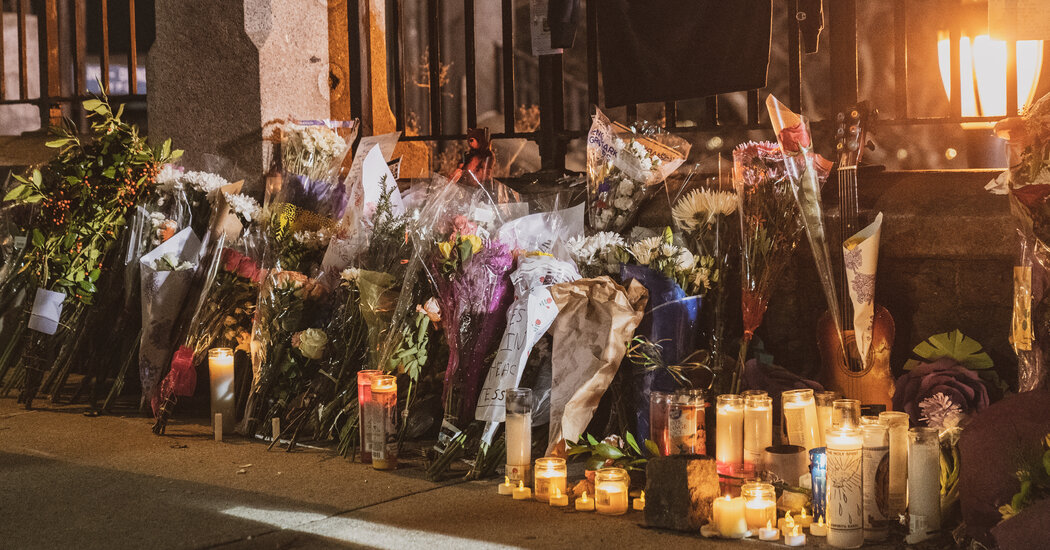The final chapter in the stabbing of Ms. Majors, a Barnard College student, was closed on Wednesday as the last of her attackers was sentenced in Manhattan.
A little more than two years after the brutal murder of Tessa Majors, an 18-year-old Barnard College student, the last teenager to be sentenced in her killing received 14 years to life in prison on Wednesday.
The teenager, Rashaun Weaver, 16, had initially pleaded not guilty but changed his plea last month, pleading guilty to second-degree murder and first- and second-degree robbery. Prosecutors have said Mr. Weaver wielded the knife that killed Ms. Majors in the December 2019 attack, stabbing her four times in the chest.
Mr. Weaver and two of his middle-school classmates, all of whom were between the ages of 13 and 14 at the time, were charged in the deadly stabbing. Mr. Weaver’s sentencing officially brings the case, which sent waves of shock and grief through New York City, to a close.
In a Manhattan courtroom on Wednesday, the families of Ms. Majors and Mr. Weaver sat on opposite sides of an aisle and listened as a prosecutor, Matthew Bogdanos, read a statement from Ms. Majors’s family that detailed her attack.
“They have no idea what it is like to stumble up a long flight of stairs after being stabbed multiple times in the chest, her phone still in her hand,” Mr. Bogdanos said. “They have no idea what it’s like to try and hail an Uber ride while sitting on a city bench after being stabbed. No idea what it is like to bleed to death on a New York City street in the presence of strangers next to a security booth.”
He added: “Fourteen years to life is a long time, but at the end of his sentence Rashaun Weaver goes home. Tess never will.”
A second teenager, Luchiano Lewis, 16, was sentenced in October to nine years to life in prison for Ms. Majors’s killing. He recalled in court how he, Mr. Weaver, and another friend had wandered to Morningside Park with the intent of robbing someone. He said the three teenagers had settled on Ms. Majors, and described attacking her.
The third person involved confessed to the killing and his participation shortly after the crime. He was later sentenced to up to 18 months in a juvenile detention facility. (The New York Times is withholding his name because he was a minor who was not charged as an adult.)
After Mr. Bogdanos read the statement, Mr. Weaver’s lawyer, Jeffrey Lichtman, assured the court that his client was remorseful.
He argued that Mr. Weaver’s turbulent upbringing in public housing, and the fact that his father and some other family members had spent time in prison, had influenced the kind of choices that he made.
“He is a symptom rather than a cause in a very broken system,” Mr. Lichtman said. “Nothing absolves him for what he did, but it does explain why we’re here.”
Mr. Weaver, who wore a dress shirt and face mask, read aloud a statement apologizing to the Majors family and promised he would never see the inside of a courtroom again.
“She deserved to have a long life,” he said. “I wish I could go back in time.”
Ms. Majors’s killing rattled New York City and recalled a time when city parks were more dangerous after dark.
Ms. Majors grew up in Charlottesville, Va., and moved to New York for school and to pursue a career in music. She spent her weekends making punk rock music with her band, which had its first concert in the city just months before her death.
Mr. Bogdanos described the pain and grief that Ms. Majors’s family and friends have carried with them in her absence.
“She is not in this courtroom. Or attending a class. Or playing music. Or laughing with friends,” he said. “She no longer exists on planet Earth. She is gone and she is gone forever.”


























